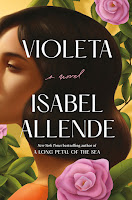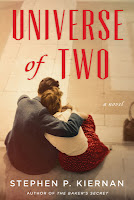Time to read something frivolous and light-hearted, so I picked a Georgette Heyer Romance that’s been sitting on my shelf for a while: The Nonesuch.
“Nonesuch” is one of those weird Regency epithets. It apparently refers to a gentleman without equal, particularly in the athletic or sporting realm, which in those days encompassed riding horses, skillful driving of carriages, and boxing. (Feel free to correct me or add to this understanding.)
In this case, the Nonesuch is Sir Waldo, a handsome, charming, unflappable thirty-five-year-old gentleman who does everything well. He has just inherited a ramshackle house out in the country, so he leaves London to check it out. Waldo is not only wealthy but also philanthropic, and thinks this house may suit as an orphanage to endow.
The arrival of such a paragon sets the town in a frenzy. All the young men want to mimic him. All the young girls hope he comes courting. One girl who anticipates she will be the natural winner of his attentions is the seventeen-year-old Tiffany Wield. She is a wealthy (orphaned) heiress and extremely beautiful. People have been telling her for years how beautiful she is, so she is spoiled, selfish, vain, and manipulative. It’s difficult to imagine a worse person. She’s currently living with an aunt, who continues to spoil her out of fear of her tantrums and a vague hope that the girl will marry her son (a cousin) and bring all that money into her side of the family. The son sees through Tiffany and has no interest, but he’s about the only young man in the town who is not bowled over by her.
Tiffany would like to add Waldo to her list of admirers, but not to marry, since she expects to marry a peer.
The woman who must try to reign in Tiffany’s bad behavior, and has some limited success in doing so, is her governess/companion, Ancilla Trent. Ancilla is wellborn but poor. She’s also twenty-eight, and therefore past the age of expecting romance.
Ancilla and Waldo are made for each other. They have hurdles to jump and some misunderstandings to get past, but they are both such sensible, good-humored characters that it isn’t hard for them to find their way to one another. The situations were not as ridiculously hilarious as in Sylvester, but their witty dialogues make their interactions funny and fun. The ending was a bit abrupt, but things had been resolved so it didn’t really need more winding up. If you’re in the mood for a quick, clean, amusing Regency Romance, The Nonesuch delivers.

















